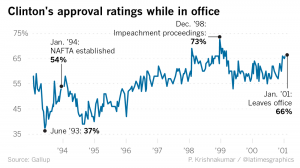Media Today: A Flawed Watchdog?
In a nation blemished by scandal and tragedy, perhaps no other scandal remains more infamous than Watergate. In almost every retelling of the Watergate scandal, the media is regarded as the hero, a reputation rarely attributed to the media today. In a New York Times article, author Anne E. Kornblut analyzes the affects in which the Watergate scandal and news media’s role in said scandal changed both the way the media conducts its business and how the people regard the news media itself, which raise questions about whether or not the news media is performing its function to the best of its ability today.
In order to analyze how well the news media is conducting its business, as it relates to political journalism, it is important to understand its major roles: to be a watchdog for illegal or unsavory actions by government officials, and to clarify and simplify politicians’ policies and positions on issues for the public so that they can make rational, informed decisions. In the case of Watergate, we see exemplary journalism regarding its role as a watchdog. While it can be argued that the media was overly accredited as the hero of the story, it cannot be argued that they failed as a watchdog. Without Bob Woodward and Carl Bernstein and their utilization of Deep Throat, much of Watergate could have gone undisclosed to the public. However, this marks the beginning of the end for the media’s reputation as a loyal and respectable watchdog. In contrast, Anne E. Kornblut references the Clinton scandal, where Clinton’s approval numbers actually rose post-scandal because people had come “to see the press as a watchdog that barked too much, and sometimes was out of control.” The news media’s excesses in this regard are perhaps unsurprising given that its primary roles are, unfortunately but unavoidably, also grounded in making a profit.

The area in which the news media is perhaps failing in its primary functions becomes clear when measuring the public’s distrust of its own government. The New York Times article argues that this stems from the way the Watergate scandal was handled by the news media. Anne E. Kornblut cites historian Alan Brinkley who believes “It created generations of people trying to replicate that role by digging in more and more unsavory ways. As much as Watergate is a model of the journalism that we admire, you can also see in it the origins of the distrust we have today.” Thanks to a shift in journalism towards infotainment and focusing on scandal in order to increase viewers, most of the news today rarely has to do with the objective synthesis and explanation of policies. Instead, the focus appears to be on portraying politicians as untrustworthy liars with hidden agendas. Ultimately, while journalism seeks to ensure transparency and informed decisions crucial to our democracy, it is simultaneously undermining these efforts.
While the media has proven itself to be an attentive watchdog, it increasingly fails to deliver on perhaps a more fundamental aspect of its job. Failing to provide a proper and, most importantly, objective, understanding of the critical issues at hand, the news media obfuscates the country’s political discourse and contributes to the undermining of the democratic process.
Sources:
Graph: http://www.latimes.com/nation/politics/trailguide/la-na-democratic-convention-2016-live-bill-clinton-s-legacy-1469576026-htmlstory.html